The time we spend communicating with our wee ones is important for helping their little minds to develop. They’re born ready to start interacting with you and the more you interact with them throughout the day the better. Here are some tips for simple things you can do to engage with your baby while you get on with your day.
Getting started
Having a baby can be an overwhelming experience. You now have a new person who will be depending on you to help them manage their emotions and learn about the world. It’s exciting and rewarding but can also be difficult and stressful. Taking care of your baby’s physical needs feels like such a massive job that you might worry you aren’t giving their emotional needs enough attention.
But if you don’t know where to start, don’t worry. There are plenty of simple things you can do to build your relationship and connect to them. By talking to them and comforting them, you make them feel safe. They can’t understand all that you say but they understand enough to feel comforted by your voice and your attention.
Although they can’t talk yet, babies “chat” with their parents and others around them using actions, expressions and sounds. By engaging with them, you can give them the foundation of love and affection they need.
In this short video, Glasgow mum Kim shares the little things she does to boost her wee one's emotional and social development. For more tips, check out our page on chatting with your baby.
Tips for connecting with your baby
Tip #1: Make life playful
It could be chatting or playing a game as you go about your daily activities. It could even be singing to them in the car, or telling them a story at the shops. By weaving in playfulness throughout the day, you help your baby learn that relationships are joyful and fun and trustworthy. These experiences then become embedded in the pathways in their brain.
Tip #2: Facetime
Babies, especially when they’re very young, can’t see very far. So get close for some face to face chats. Mirroring your baby's expressions and noises as well as speaking in a sing-song, tuneful voice really helps their development and communication.
Tip #3: Out and about
Talking to your baby when you’re out and about is a good way for them to hear your voice and for you to bond. Talk about the things you see on your travels, like the colours of the cars you walk past or dogs you pass on your walk.
An added bonus: getting outdoors is good for you as well as your baby and helps you clear your head. Result!
Tip #4: Funny voices
Talking to your baby may sound simple, but it’s very important for babies' development. Don’t be afraid of making funny voices or sounding daft, in fact the more tuneful you sound the better!
Tip #5: Take your time
It can take a baby at least 10 seconds to gather themselves and get a response together, so pausing and waiting to see what your baby does can help give them the time they need.
Tip #6: Echo time
Repeating their sounds back to them is a good way of helping them find their voice and get used to communicating with you. And when your baby makes sounds or gestures, you can talk back to them as though they have said something. It doesn’t matter what you say, your baby will love it!
Tip #7: Put your phone away
We all have busy lives and need to stay in touch with friends and family and keep on top of emails and life admin. But babies love having our full attention, and to feel that we’re responding to them – it helps them to feel safe and connected. And if you’re looking at your phone and they can’t see your face, this can be upsetting for them. If it happens often, it could affect their development and make it harder as they grow up for them to learn to communicate and socialise.
So when you’re chatting or playing with your wee one, try to put away the phone and give them your full attention. Our page on babies and screen use explains more.
Serve and return – to and fro with your baby
One way to connect with your baby is by doing something you might find you do already called “serve and return”. This is when you watch whatever your baby does and let them see you copy it. So your baby might say “da!” If you smile and say “yes, it’s daddy!” your baby will feel connected with you, and use your response to learn.
Or your baby might look at something, and you can say what it is and show it to them. Then pause and see how your baby responds. Try to keep it up as long as your baby is interested. Even if you’re busy with housework or other tasks, it can be fun to involve your baby by “chatting” about what you’re doing.
By doing this your baby learns that you are listening and responding, and this then gets built into the pathways in their brain. This simple turn-taking helps your baby learn about communication and helps them realise how much they matter to you. It also begins to build their confidence and lays foundations for how to manage their feelings as they grow.
"Serve and return helps your baby to learn new skills in communication and socialisation. Interaction with others who respond to them with noises, gestures and touch helps the social part of their brain develop. Interaction and relationships are essential to growing their little brains and minds."
This video from the Royal Foundation Centre for Early Childhood explains more about how back and forth interactions help support baby’s development.
Tuning in – noticing your baby’s feelings
When you’re chatting, playing or interacting with your wee one, it’s important to “tune in” to them – to notice what they’re doing and think about how they may be feeling. For example, if you’re responding to them and they’re babbling back, they’re probably feeling content. If they’re looking away, they may be feeling overwhelmed and need a bit of a break.
“You can never give your baby too much attention. However, it's important that the attention you do give is tuned into their cues and signals. They sometimes feel stressed by too much stimulation and may want to turn away. Your attention is then a quiet soothing attention rather than a playful one. Even thinking about them while they're sleeping seems to help their wellbeing and development.”
This video from the Royal Foundation Centre for Early Childhood explains more about tuning in.
Co-regulation – managing feelings
Co-regulation is a natural part of relationships where people (babies and adults!) learn how to manage their emotions with the support of others. Babies can't manage their own feelings, because their brain and stress system is too immature. They need help in managing big emotions. Parents do that when they respond to babies' needs.
This is the process of co-regulation, when your warm, reassuring reactions help a baby to 'regulate' their own emotions. These reactions support your baby’s understanding, and help them express themselves and manage their emotions. If you pay close attention to the signals your child sends you and respond sensitively, you will help them learn how to regulate their own behaviour.
It might sound complicated, but it is really just about being consistent in making your wee one feel cared for. For example, if your child is upset and you respond calmly and listen to them, it can help them feel better. By doing this, you’re helping your baby develop trust and feel safe
“Babies feel safe when they are near you. They aren’t sure what dangers lurk if you are too far away! That’s why they can get fretful and anxious if you are gone for too long. That doesn’t mean that you actually do need to be with them all the time. It just gives you a better understanding of why they can cry at the most unexpected times (like when you nip to the loo!). If you are sure to comfort them when you get back, then they start to learn you will always come back, and that in itself is reassuring.“
“We know secure early relationships promote feelings of security, and this helps babies learn how to think and feel. In the long term they will be better able to express and control their emotions and have happy relationships.”
This video from the Royal Foundation Centre for Early Childhood explains more about managing big feelings together.
Look, Say, Sing, Play
The NSPCC have advice on the things you can do and the games you can play with your little one to keep helping their brains grow. Their Look, Say, Sing, Play suggestions will give you lots of fun things you can do together. The more of them you try the more you’ll bond and help their minds grow.

Bookbug
You can find songs and rhymes to suit different moods or times of day in the Scottish Book Trust’s Bookbug Library, as well as ideas for how to use them with babies, toddlers and 3-5 year olds. Or you could download Bookbug's songs and rhymes app so you’ll always have songs on demand on your phone!
 Activities & Play
Activities & Play Behaviour
Behaviour Childcare
Childcare Development & Growing Up
Development & Growing Up Family, Friends & Relationships
Family, Friends & Relationships Feeding Your Baby
Feeding Your Baby Food & Eating
Food & Eating Health & Safety
Health & Safety Mental Health & Wellbeing
Mental Health & Wellbeing Money & Work
Money & Work Online Behaviour & Safety
Online Behaviour & Safety Pregnancy & First Days
Pregnancy & First Days School & Education
School & Education Sleep
Sleep

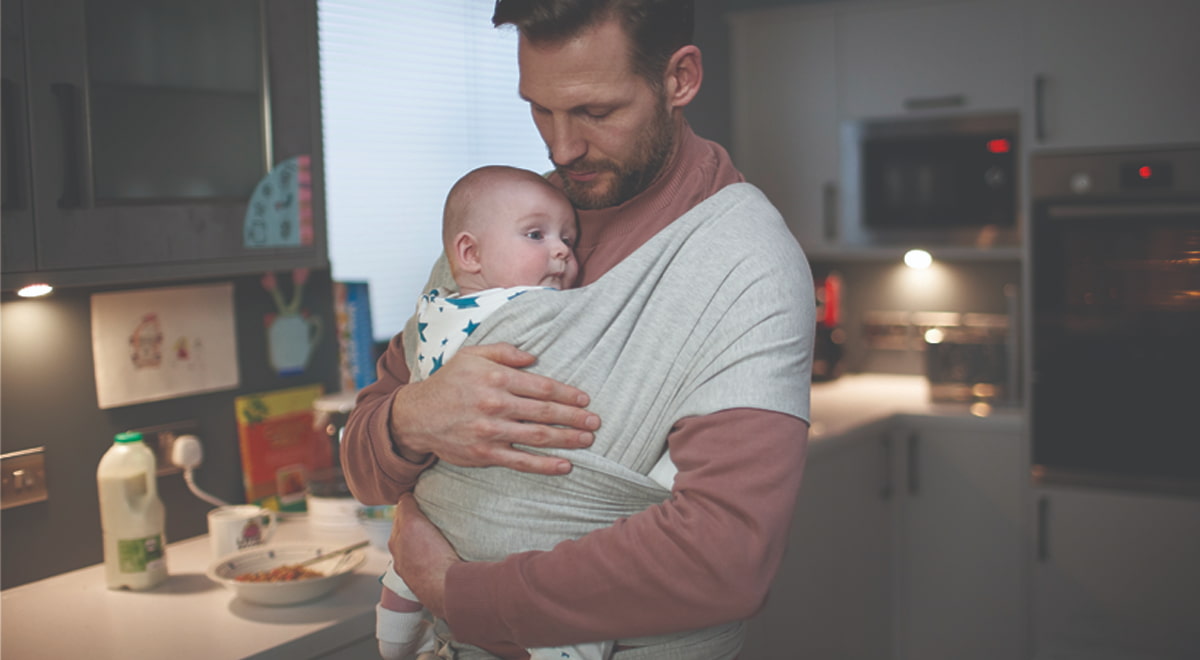
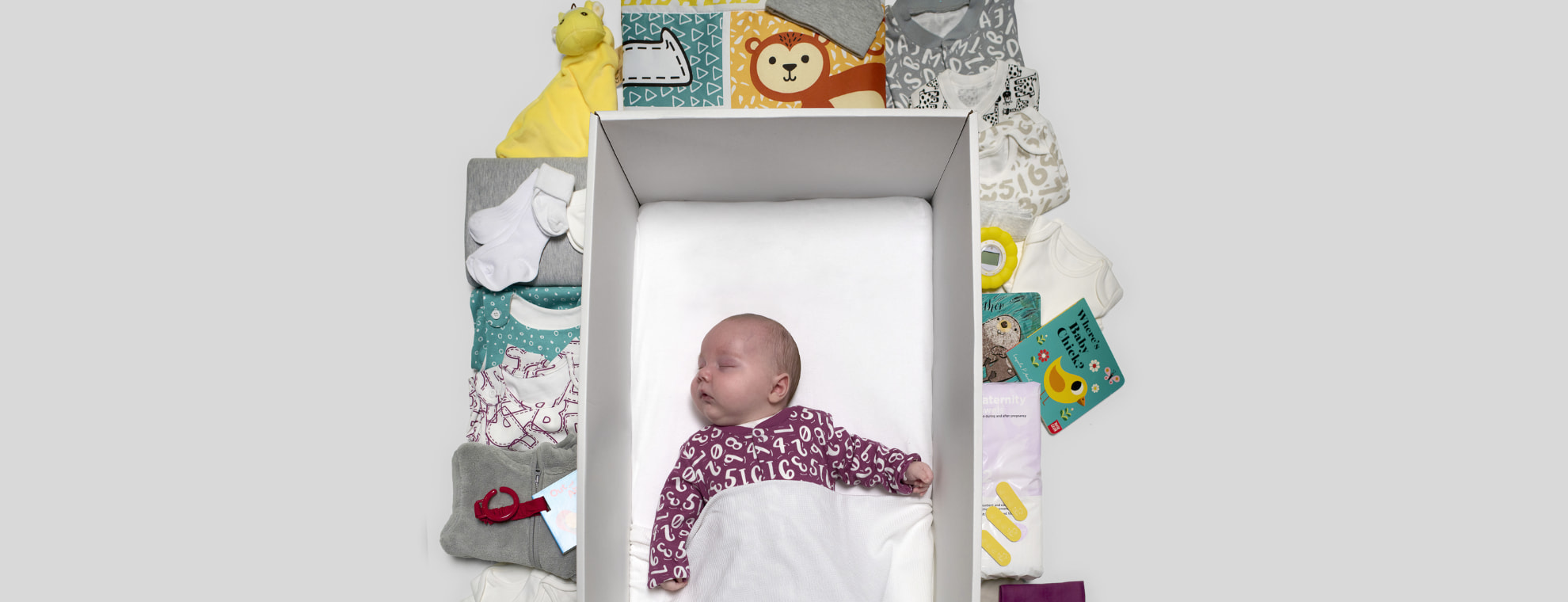
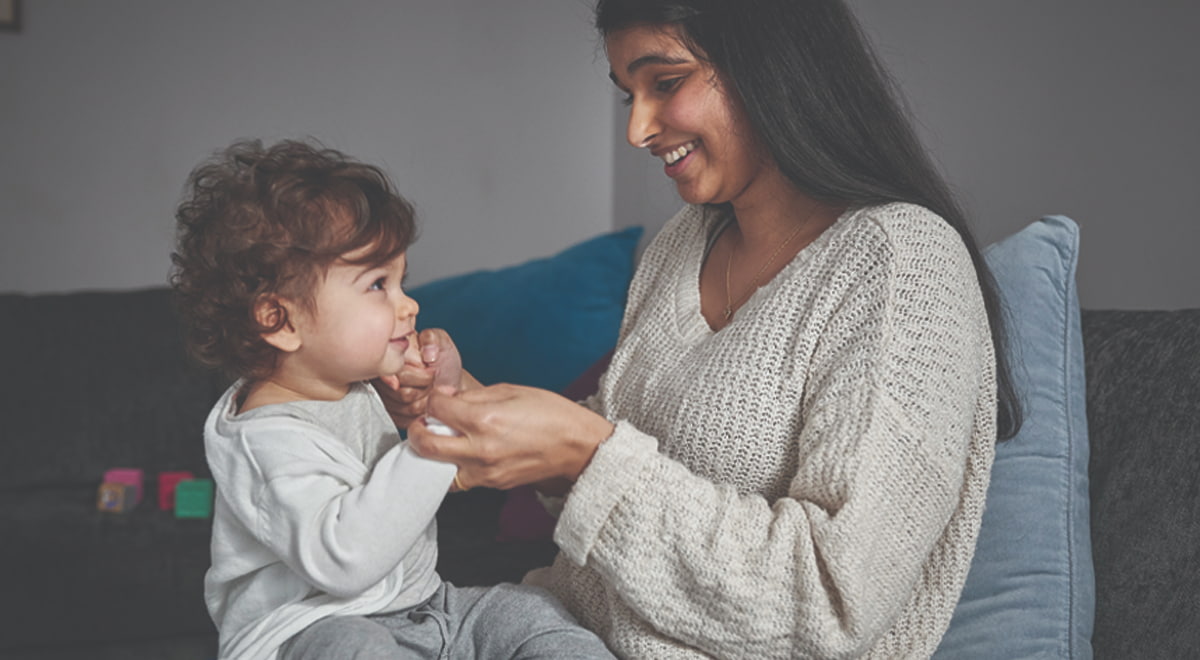
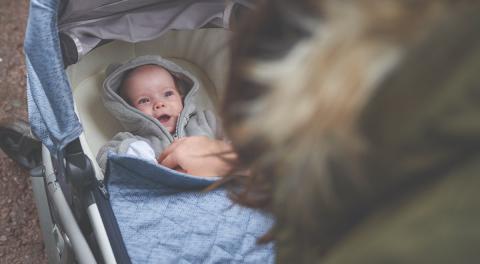
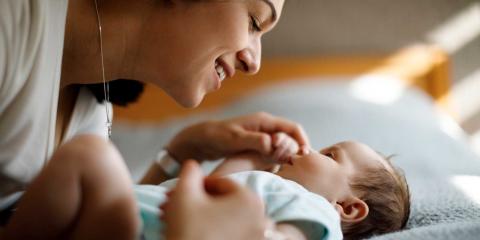
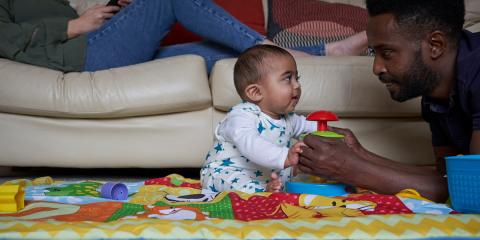


 Behaviour
Behaviour
 Sleep
Sleep